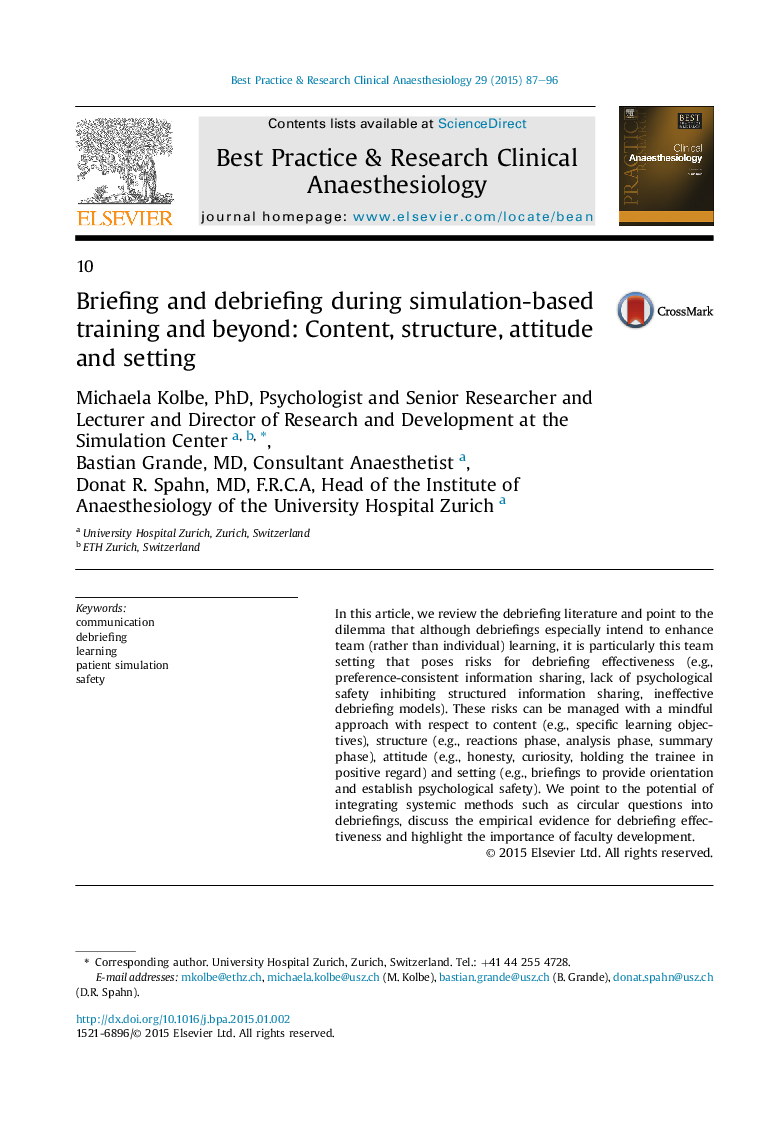| Article ID | Journal | Published Year | Pages | File Type |
|---|---|---|---|---|
| 2748455 | Best Practice & Research Clinical Anaesthesiology | 2015 | 10 Pages |
In this article, we review the debriefing literature and point to the dilemma that although debriefings especially intend to enhance team (rather than individual) learning, it is particularly this team setting that poses risks for debriefing effectiveness (e.g., preference-consistent information sharing, lack of psychological safety inhibiting structured information sharing, ineffective debriefing models). These risks can be managed with a mindful approach with respect to content (e.g., specific learning objectives), structure (e.g., reactions phase, analysis phase, summary phase), attitude (e.g., honesty, curiosity, holding the trainee in positive regard) and setting (e.g., briefings to provide orientation and establish psychological safety). We point to the potential of integrating systemic methods such as circular questions into debriefings, discuss the empirical evidence for debriefing effectiveness and highlight the importance of faculty development.
